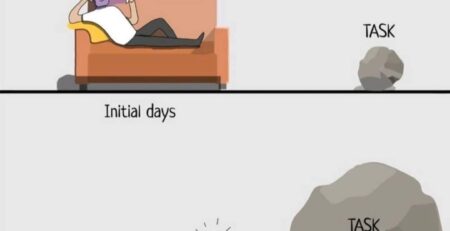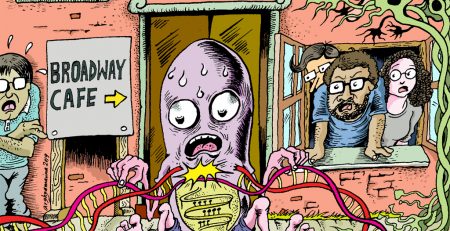Sex and Sexuality
Sex and sexuality is an important aspect of life. While practicing medicine many times all physicians come across patients who have some sexual problems. Those patients directly or indirectly try to talk about or ask about their sexual problems but many times due to lack of knowledge, lack of confidence or due to our faulty attitude towards it we tend to bypass these questions or sometimes avoid these patients also. If most physicians are aware of some basics and some details about sexual problems then they can deal with it confidently and will change their attitude towards sex and sexuality.
But unfortunately in India sexual medicine is not taught in any medical school. There is no place for sexual medicine in MBBS curriculum except for a short note on “Dhat syndrome”. We physicians don’t get or get very less knowledge about the anatomy, physiology, psychology & social aspect of sex during MBBS & post graduation. Many physicians’ knowledge about masturbation, frigidity, Orgasm or sexual response cycle is not much than that of lay man. We physicians are part of the society & have our own sexual experiences, our religious values, cultural restrictions and taboos and thoughts, our own attitudes. Many physicians may not be comfortable with talking about sex & sexuality. Many times physicians in spite of knowing there limitations to treat these cases lead to incorrect advice & treatment causing great anxiety & damage to the patient.
Our society has many misconceptions about sex & sexuality & off course we are part of it. But there should be difference between layman & the physician. If he himself has misconceptions then how can he clear misconceptions of others?
Fortunately people are directly talking about their sexual problems now but still some patients try only to give hint towards their sexual problems. While still more even don’t understand they are suffering from some sexual problems which expert or knowledgeable physician or sexologists can pick up.
Tackling some sexual problems is as easy as general medicine if you get sufficient knowledge about this area & does not need exhaustive training. Even if you don’t have special training you can tackle 50-60% of cases or even more. Only complicated cases will need specialist intervention.
Physician should listen to the history carefully; look for the clues & hints that suggest sexual history. He should Ask simple questions to make them talk about sexual problems like “how is physical relationship going on?” especially to the patient suffering from diabetes mellitus, hypertension, endocrinal disorders or psychiatric disorders.<>/p
Many problems are iatrogenic sexual problems. When physician treats patient for hypertension many antihypertensive medications leads to erectile dysfunction, some antipsychotic medications can cause various sexual problems ranging from decreased desire to anorgasmia, diazepam, SSRIs causes decreased desire. Excitement & platue phase both can be affected by atropine, cimentidine. Physicians’ proper advise can prevent these or simple questions can detect it & provide relief to the patients.
Every physician must know PLISSIT model. P stands for permission, LI for limited information, SS for specific suggestion & IT for intensive therapy. Permission giving & limited information can be easily & comfortably handled by physician & 50% of sexual problems can be solved with it. For remaining 50% sexual problems patients can be sent to sexologist for specific suggestion & intensive therapy who is trained in sexual medicine, sexual therapy, REBT & CBT.
Permission giving is ‘something that people want to know that they are normal. They are not perverted or deviated or abnormal & there is nothing wrong with them & they want to know it from someone with professional background. They may want to know & ask about masturbation & night fall, orogenital sex & anal sex, premarrital & extramaariatal sex, homosexuality & lesbianism & various sexual deviations like sadism & all.
Limited information is providing information as normal physiology about their problems or about family planning. And this permission giving & limited information can be easily handled by physicians if they get basic training & become comfortable while handling all this.
Physician should become aware of his limitations; if possible try to take minimum knowledge. If physician is confident that he is capable to treat that problem then only he should treat the patient. He should not throw his half baked knowledge to his patients. His own experiences, prejudices should not end up telling something that is not of expert but of a lay man.
Physicians are the first one who can come to know about it, if he can see it or suspect it; and he can see it only if he have knowledge about it. 20-30% of our OPD patients having backache, headache, pelvic pain can have root in sexual problems, it can be a somatic sexual problems. Also loss of desire can be a first symptom of diabetes mellitus and so as erectile dysfunction being first symptom of atherosclerosis. Phimosis, episiotomy, genital warts, hydrocoele, vericocoele, hernia can have much impact on sexual life. If physician get enough knowledge he can easily treat somatic sexual problems, frank sexual problems, clear misconceptions, detect and treat iatrogenic sexual problems, provide family planning counseling and better advice to the youth, to married couple to geriatric people or infact to anybody who experiences sexuality.
If not, Physicians should atleast know when he should send patients to sexologist rather that he treating the patient. If physician feels uncomfortable, if he can’t provide unbiased advise, if he is not confident, if physician feels he don’t have enough knowledge to treat him or if he can’t spare enough time for him then its better he send patient to the expert Sexologist.
Our council is working since years for it. To take it to the physicians and people working in field of sexuality. Involving them in gaining and sharing knowledge, bringing the expert together from different specialties viz Psychiatry, Urosurgery, Gynaecology and other who are working as sexologist. Hope many more will join the further and that will benefit the society. Lets take it to all.
Dr. Atul Dhage Neuro-Psychiatrist & Sexologist
Mindcare Hospital For Mental And Sexual health, Ratnagiri.
dratuldhage@gmail.com




